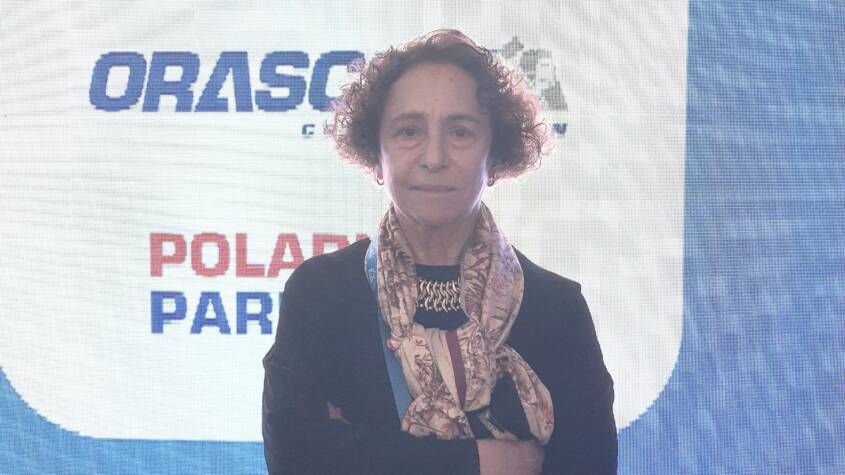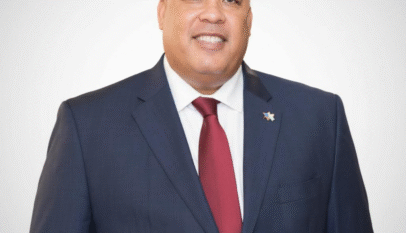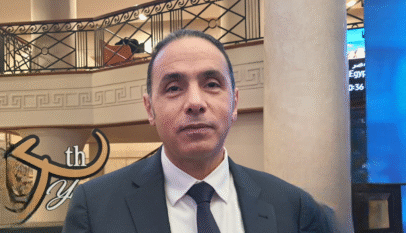By H.E.Ana Palacio
Former Foreign Affairs Minister of Spain, and
Visiting Professor at Georgetown University
Published in El Mundo, November 5, 2025
(The news of Dick Cheney’s death reached me in Cairo, as I was finishing a conference and heading to the newly opened museum. This is a hurried chronicle of memories and reflections.)
In Washington, nicknames carry more bite than humor. Darth Vader was the one Dick Cheney earned. It wasn’t coined by an adversary, but rather took hold in the realm of “popular wisdom.” It reflected the man who operated in the shadows — the relentless strategist behind the throne. The allusion to the Star Wars character captured, with a touch of irony, both the fear and fascination Cheney inspired, even among his own.
Vice President to George W. Bush and architect of much of the post-9/11 security framework, Cheney embodied a distinctly American conviction — one alien to our European sensibilities: that authority needs no justification. Duty is not to be debated; it is to be carried out.
I met him in the corridors of the White House, while serving as Spain’s Minister of Foreign Affairs under José María Aznar. Those meetings helped me decipher his logic — that of a man who did not seek to persuade, but to decide. Cheney listened without interrupting, with a dry politeness that could be disarming. When he finally spoke, it was slowly, in short, conclusive sentences. Around him, a kind of soundless vacuum would form — the silence imposed by those who truly wield power.
His command of the institutional machinery was absolute. He needed no visibility; his influence was structural. In a political culture that rewards charisma, Cheney represented dark efficiency — the ability to pull the levers without leaving fingerprints. The “deep state” had a name and a face.
Those meetings helped me decipher his logic — that of a man who did not seek to persuade, but to decide
I recall a particularly tense meeting in which debate over Iraq became entangled in legal and strategic nuances. Cheney listened without a flicker of expression, which could easily be read as intimidation. At the end, he merely said: “I appreciate your clarity, even when I disagree.” A curt phrase, devoid of warmth — his way of closing a discussion, and in his own manner, acknowledging it.
(It was also in those years that the person who mattered most to him began to emerge clearly: his daughter, Liz. Even during his vice presidency, Cheney viewed her as his natural heir — the continuation of his public commitment. In Liz, he saw the vision of a mentor who knows he is being replaced, yet also replicated.)
Over time, I came to understand that Dick Cheney embodied an ethic of duty that has largely faded from politics — the conviction that governing means deciding alone. Liz, so central to his later life, inherited that same awareness of power but transformed it — into a moral fiber that years later would lead her to confront Trumpism from within the Republican Party.
Liz and I crossed paths in Washington at a time when polarization had not yet devoured civility. I was then an “ex,” returning not as a member of the Spanish government but because of the selection — and subsequent incorporation — process at the World Bank. I remember, in particular, a dinner at the Observatory, the Vice President’s residence, with her and her father (who, in his own way, honored the relationship Spain had maintained with the United States before the arrival of José Luis Rodríguez Zapatero).
Over time, I came to understand that Dick Cheney embodied an ethic of duty that has largely faded from politics — the conviction that governing means deciding alone.
Frank, sometimes sharp, always substantial words. Liz shares with her father that dry intelligence, surgical precision, and calm that does not preclude firmness. But where the father projected raw power, she projects conviction.
In her, power becomes responsibility. Her challenge to Donald Trump — her defense of electoral truth — restored to the Cheney name a dignity many believed lost. She was, and remains, an exception: the dissident who upheld civic duty over political calculation.
Today, the words of a senior Republican official echo in my mind, spoken in the days leading up to the Iraq invasion: “Cheney believes history is written by those who act, not those who hesitate.” Harsh, but accurate. It captures his understanding of governance as action — so characteristic of post-9/11 America.
Years later, standing with Liz Cheney and Condi Rice, that phrase came back to me with a new meaning. We were talking about the wear of power. Condi, with her usual pragmatism, remarked: “Power wears you down — even if you’re not the one exercising it.” Liz barely smiled, let a deliberate silence fall, and replied: “Only if you don’t know why you have it, or why you seek it.”
That lesson has surfaced again in her speeches since being sidelined within the Republican Party. It encapsulates the essence of political “dynasties,” a deeply American tradition. Dick and Liz Cheney are two faces of the same legacy: power as exercise, and duty as an expression of patriotism.
But in my experience, there’s an anecdote that humanizes all this — a smaller, almost domestic image. During Bush’s second administration, I attended one of those long-table dinners in a hotel hall — a dozen women gathered around Condi Rice, then Secretary of State. I was seated beside Liz Cheney, who had given birth just a few months earlier. From beneath the table came peculiar little sounds, like a faint purr. I thought perhaps a cat had wandered in (though it didn’t seem likely).
When she rose from the table, Liz bent down and, quite naturally, pulled out a small basket with her baby inside — whom she had been gently rocking with her feet throughout the evening in that vast “tent.” In that moment, I somehow saw the continuity of her father — and at the same time, the reverse side of the “tough cookie”: a thoroughly modern mother.
رئيس غرفة القاهرة يُشكّل لجنة لمتابعة الخطوات التنفيذية لاستئناف العمل بمشروع نادي تجار المحروسة
شكّل أيمن العشري، رئيس غرفة القاهرة، لجنة لمتابعة خطوات تنفيذ استئناف مشروع نادي تجار المح…






















